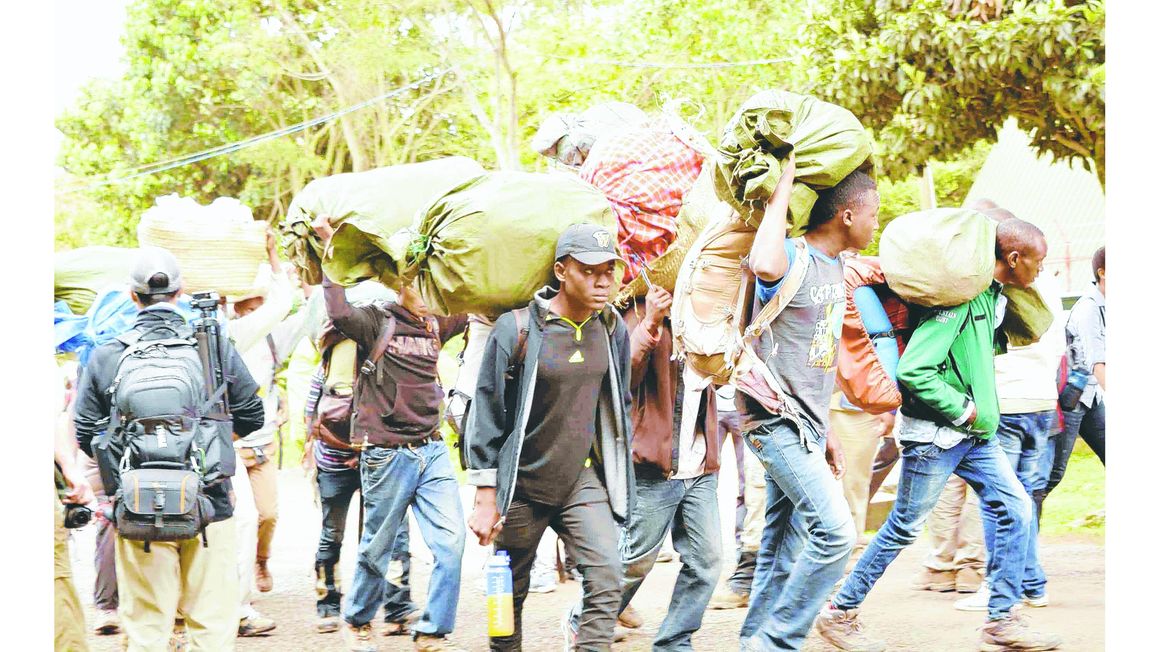The government has embarked on the largest free mass Covid-19 vaccination exercise for frontline workers in the tourism industry in an effort to roll out the red carpet for tourists during the peak season.
Jointly spearheaded by the Arusha Regional Commissioner’s Office, the ministry of Health and the Tanzania Association of Tour Operators (Tato), the ambitious free vaccination splurge kicked off on Monday in the country’s safari/tourism hub for the Northern Tourism Circuit, Arusha.
Launching the vaccination campaign, the Arusha Regional Commissioner, John Mongela, extolled Tato for mobilizing the frontline workers, vowing to ensure sufficient supplies of the jabs for tourism stakeholders.
The campaign will see to nearly 7,000 frontline workers immunized against Covid-19 infections, as the country seeks to bring the pandemic under control, ahead of the tourism high season.
Hundreds of frontline workers – including tour guides and porters, as well as employees of hotels, lodges and tourist camps – gathered at Tato’s main office in Arusha to be vaccinated in six big tents.
Fransisca Masika, a key tour operator, was happy to receive the vaccine after a year of uncertainty.
Tourism is a lucrative business in Tanzania as it creates 1.3 million decent jobs, generates $2.6 billion annually, accounts for 18 and 30 percent of the country’s GDP and export receipts respectively.
Key players say that the pioneer rollout of free vaccines for tourism frontline workers in the country, offers a glimpse of hope that the sub-sector will bounce back bigger and better, as the country lays out the welcome mat for tourists in the high season.
The Tato chairman, Mr Wilbard Chambulo, says the mass inoculation drive for frontline workers is a new impetus in the tourism industry recovery struggle, as the move would boost the country’s latest initiative to restore tourist’s confidence in their health.
“The mass voluntary vaccination for the tourism industry frontline workers ahead of a high season, would usher in a new impetus for the country’s efforts to revive the industry,” Mr Chambulo said as he flagged off the inoculation drive in Arusha, virtually Tanzania’s safari capital.
“We are so proud and delighted for our government for giving tourism industry its due attention in the country’s response against the Covid-19 pandemic,” he said.
Mr Chambulo said that Tanzania being part of the global tourism and business equations stood to lose in the long run, should it had maintained its half-hearted attitude on Covid-19 pandemic handling.
“I believe that this tourist high season will be more busy and hassle-free as a result of the vaccine rollout both in the tourists market sources and in tourism destinations like Tanzania,” he noted.
It is understood, Tato has been working closely with the government through United Nations Development programme (UNDP) financial support to take urgent measures necessary for tourism industry to rebound in the aftermath of Covid-19 pandemic.
The inoculation campaign comes a week after Switzerland leading leisure airline, Edelweiss Air, has announced it is adding Kilimanjaro, Zanzibar, and Dar es Salaam, as new destinations in Tanzania, beginning in October of this year.
These new flights are offering a ray of hope to the country’s multi-billion-dollar tourism industry.
Flies to the most beautiful destinations in the world, Edelweiss Air is not only a sister company of Swiss International Air Lines, but also a member of the Lufthansa Group.
Lufthansa has nearly 20 million customers in its base around the world, bringing a way to reach more potential passengers.
From October 8, 2021, Edelweiss will be flying direct from Zurich to Kilimanjaro International Airport (Kia), a major gateway to Tanzania’s northern tourism circuit, twice a week, with high-end tourists from Europe to grace the tourism peak season.
“Then it goes on to Zanzibar, but only once a week, because from October 12, 2021 there will be an alternative flight to Dar es Salam on the other day of traffic, the Swiss Tanzania’s General Manager, Mr André Bonjour, told tour operators in Tanzania’s designated safari capital of Arusha recently.
This offers Tanzania’s $2.6 billion tourism industry a strategic boost to achieve its target of attracting five million tourists and generating $6 billion in foreign exchange in 2025.
“To add three destinations in Tanzania during toughest times, is not only a vote of confidence to the country, but also a boost to its travel industry to realize its target of five-million tourists in 2025,” he explained.






